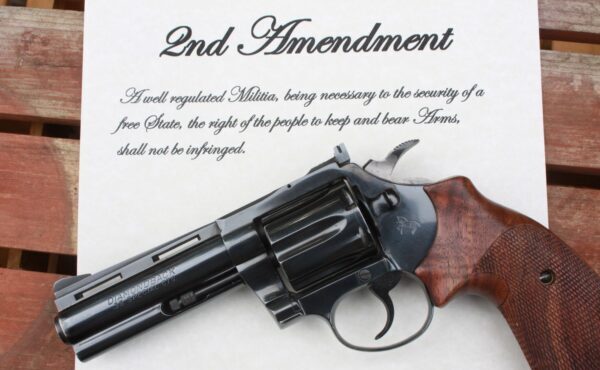
By Dave Workman
Editor-in-Chief
The Second Amendment Foundation on Wednesday filed an amicus brief to the U.S. Supreme Court supporting Hawaii resident Christopher L. Wilson’s petition for a writ of certiorari in his challenge of the Hawaii state Supreme Court’s decree that individual citizens in the Aloha State do not have the right to carry firearms for self-defense outside of their homes.
The case stems from Wilson’s initial legal troubles with Hawaii over carrying a concealed handgun without a license, which is nearly impossible to obtain in the Aloha State. But since the Hawaii state Supreme Court handed down a ruling in February essentially declaring the Second Amendment does not apply in the state, the case has taken on a much larger profile.
TGM reported on the ruling back on Feb. 9.
Writing for the Hawaii court, Justice Todd Eddins declared, “We hold that the text and purpose of the Hawaiʻi Constitution, and Hawaiʻi’s historical tradition of firearm regulation, do not support a constitutional right to carry deadly weapons in public.”
He also stated, “Conventional interpretive modalities and Hawaiʻi’s historical tradition of firearm regulation rule out an individual right to keep and bear arms under the Hawaiʻi Constitution.”
The ruling has set the stage for a potential constitutional collision, which could see the state high court’s decision smacked down under the Supremacy Clause.
“When the Hawaii Supreme Court brazenly declared in February that the Second Amendment essentially does not exist within the state,” noted SAF founder and Executive Vice President Alan Gottlieb in a statement to the media, “we were stunned. This declaration is so astonishing in its nature that the U.S. Supreme Court simply cannot allow one-tenth of the Bill of Rights to be arbitrarily erased. Hawaii is still part of the United States. It is not a police state.”
The 53-page Eddins ruling notes the wording in Hawaii’s state constitution is nearly identical to that of the Second Amendment, with the only differences being a couple of commas. Here is the wording of the Second Amendment:
“A well regulated Militia, being necessary to the security of a free State, the right of the people to keep and bear Arms, shall not be infringed.”
This is the wording in Article I, section 17 of the Hawaii state constitution:
“A well regulated militia being necessary to the security of a free state, the right of the people to keep and bear arms shall not be infringed.”
But in his ruling, Justice Eddins contends, “Both clauses of article I, section 17 and the Second Amendment use military-tinged language – ‘well regulated militia’ and ‘bear arms’ – to limit the use of deadly weapons to a military purpose.
“In contrast,” Eddins adds, “there are no words that mention a personal right to possess lethal weapons in public places for possible self-defense.”
But Adam Kraut, SAF executive director and a practicing attorney, had this to say: “The Hawaii court has reduced an established right protected by the federal Constitution. This is nothing short of open rebellion against the Supremacy Clause. Lawless judicial activism of such an extreme nature, if left undisturbed, would set a dangerous precedent that State supreme courts are free to tunnel below the constitutional floor of the Second Amendment. Millions of peaceable, law-abiding adults would be deprived of their fundamental right to carry firearms in public for self-defense based on geographical luck of the draw. As a consequence of such chaos, the Second Amendment would be rendered dead letter.”
SAF reminds the high court in its amicus brief the Second Amendment “is not a second-class right.”
“The ‘Aloha Spirit’ does not trump the U.S. Constitution,” SAF states. “This is a non-negotiable matter of federalism.”



